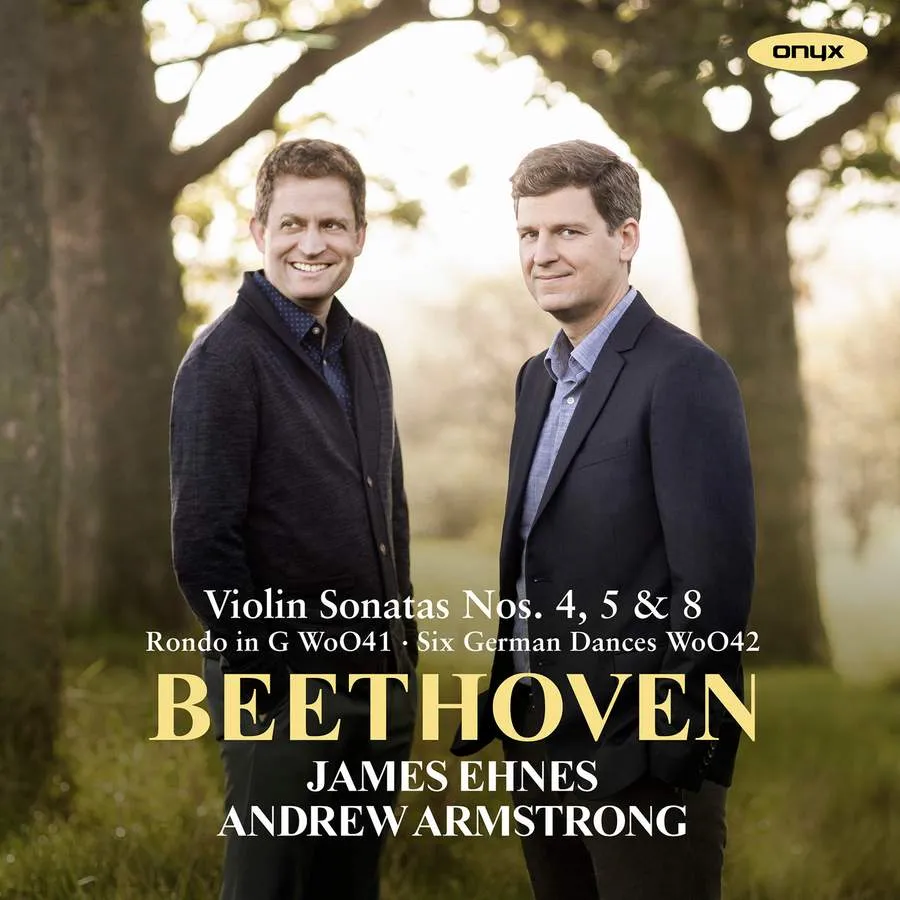
Beethoven Violin Sonata No. 4 in A minor, Op. 23; Violin Sonata No. 5 in F major, Op. 24 'Spring'; Violin Sonata No. 8 in G major, Op. 30 No. 3; German Dances, WoO 42; Rondo for Piano and Violin in G major, WoO 41 James Ehnes (violin), Andrew Armstrong (piano) Onyx ONYX4208 69:02 mins
Record companies like composer brands, not least the Beethoven one. Music publishers liked it in Beethoven’s day too, and he was determinedly good at turning out the quantities of piano and chamber music that they wanted and would pay for.
The Violin Sonatas Nos 4 (in A minor, Op. 23) and 8 (in G major, Op. 30 No. 3) display all the qualities of an already formidable master-composer: the rhythmic drive whose forcefulness so amazed and disconcerted Beethoven’s early listeners, the epic range of moods, the moments of off-the-wall surprise. But not even the strength of James Ehnes’s playing – a feast of likeably gloss-free tone, magisterial technical command and flawless tuning – can quite transform the underlying feeling that both works sound relentlessly willed by their composer, rather than released by the deep self-expression that marks out vintage Beethoven.
Sure enough, the inspired Spring Sonata (No. 5 in F major, Op. 24) sings and shines all the more beautifully in this company, and Ehnes responds to it as the soul-warming masterpiece it is: the very first note of the violin’s opening phrase here becomes a quietly radiant musical world in itself, and the slow movement’s deep lyricism wells up with a lovely naturalness.
As so often in compendium releases of this kind, there are less-familiar gems on offer too. The Six German Dances and Rondo in G major find Beethoven enjoying himself in freed-up style with pastoral drones, rich invention and foot-stamping relish. Andrew Armstrong’s accompanying, personable and rock-steady, is a pleasure to savour at every point.
Malcolm Hayes